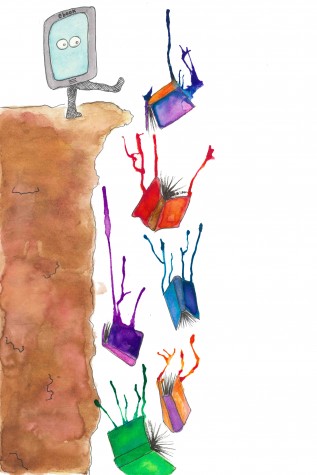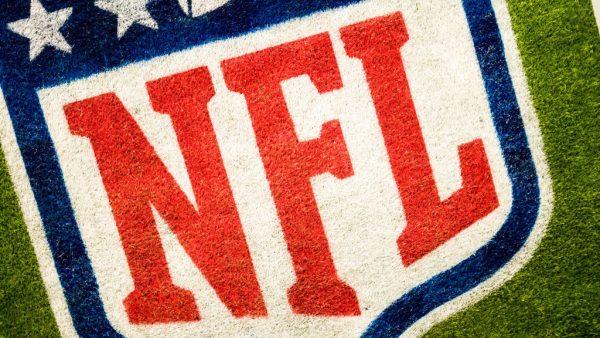I want paperback
E-books have become a threat to the once treasured paperback books.
I push through the glass doors and enter a world of infinite stories. The bookshelves create the narrow streets I stroll down as I admire each unique city. This time it’s the city of Mystery and I can feel the hairs stand up on the back of my neck. I turn the corner and embrace the city of Romance. I slide my hands across the spines of the books, soaking in the aura of passion and heartbreak.

The rising popularity of e-books are causing the decline of paperback and bookstores.
These days may soon be over. It’s all about the E words now: E for easy, E for efficient, E for electronic. So naturally, it’s E for the e-books that have caused of the decline of bookstores and the replacement of paperback.
Amazon’s Kindle came out in 2007 and Apple’s iBooks was launched in 2010. In 2011, Borders filed for bankruptcy and was liquidated by the end of the year. Barnes & Noble had created its own e-book device, the Nook, in 2009, saving itself from an earlier demise.
But even with the Nook, its future isn’t looking so good.
“In 10 years we’ll have 450 to 500 stores,” said Mitchell Klipper, chief executive of Barnes & Noble’s retail group, in a 2013 Wall Street Journal article.
That’s a closure of 200 stores, a third of its total, by 2023.
Shares of Barnes & Noble stock plunged nearly 30 percent on Sept. 7, after the company reported a surprise loss of $34.9 million according to CNN Money. The company’s revenue has declined for five consecutive quarters.
Yes, I understand we are in a technological revolution, so it should only be natural for us to make the gradual transition from print to electronic books. But just because the trend is going in one direction doesn’t mean everything has to follow.
It’s appropriate for a research paper to be accessible electronically — it’s a vehicle for information. But when we’re talking about a 300-page novel, it’s a completely different situation.
A novel tells a story. It builds an alternate universe. It creates a personal and intimate connection with its reader. An e-book does not do that relationship justice.
“Amazon has successfully fostered the idea that a book is a thing of minimal value — it’s a widget,” said Dennis Johnson, an independent publisher, in a 2014 New Yorker article.
E-books strip away the nuances of the reading experience. The smell of fresh ink, the feeling of crisp pages and the motion of turning a page are all lost to us in an e-book. Instead, reading becomes a passive act of skimming through words and tapping on a screen.
Some people may argue that these nuances are superficial desires and that printed books are simply a waste of paper. Paperbacks are less environmentally friendly than e-books, but they are not a waste of paper, a guilty pleasure or a materialistic luxury.
Preferring to read a paperback is not the same as wanting a Tiffany necklace or a Tesla convertible. Reading doesn’t make us superficial beings, it keeps us grounded. Books are prized items that bring a whole lot more than temporary happiness. They are carriers of wisdom and inciters of reflection.
Eventually, we pass them on to siblings, cousins, or friends of friends. We converse about the time we spent in an alternate universe, the lessons we learned there and the emotions we experienced. Our books may end up in the hands of strangers. We may donate them to a public library for others to read or trade them for another in a book swap.
Don’t let e-books snatch away this gift of sharing and turn reading into an act of isolation. Don’t let technology destroy the centers of knowledge and imagination that libraries and bookstores provide. Don’t let a digital screen devalue the power of storytelling.
I hope there will never come a time when I push through those glass doors, and instead of wandering through the cities of Mystery and Romance, turn the corner and stroll into a city of ruins.





